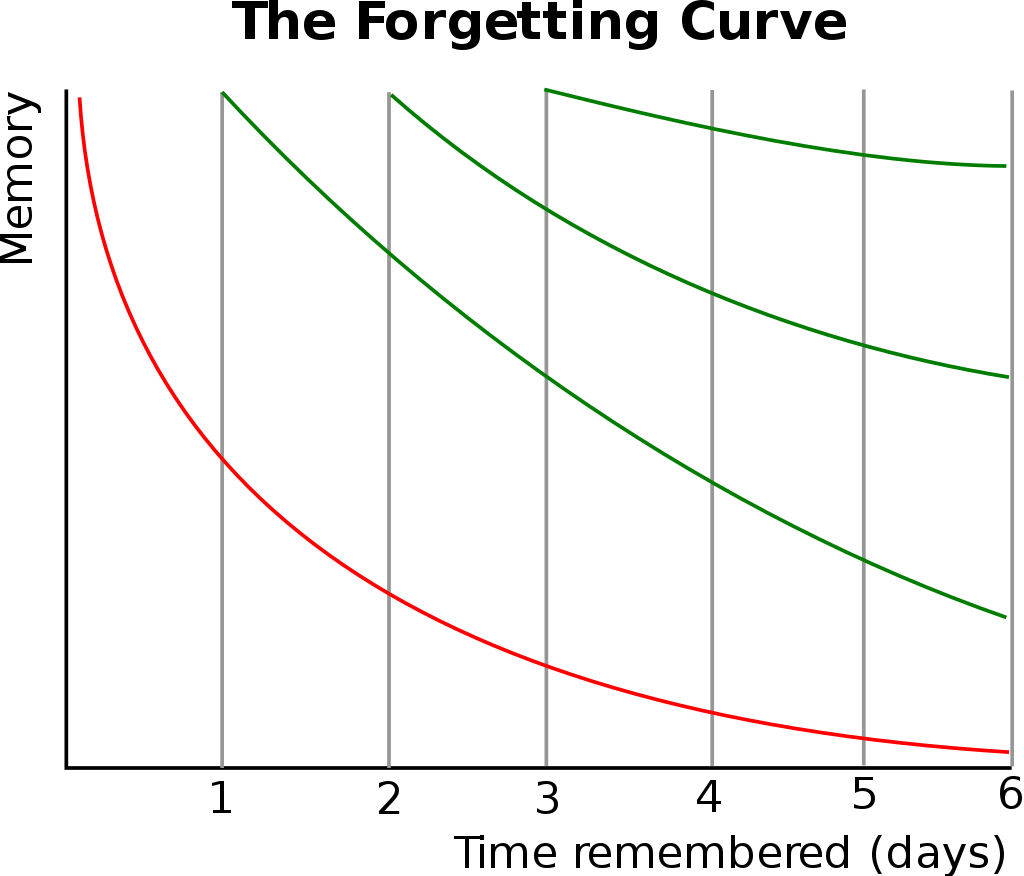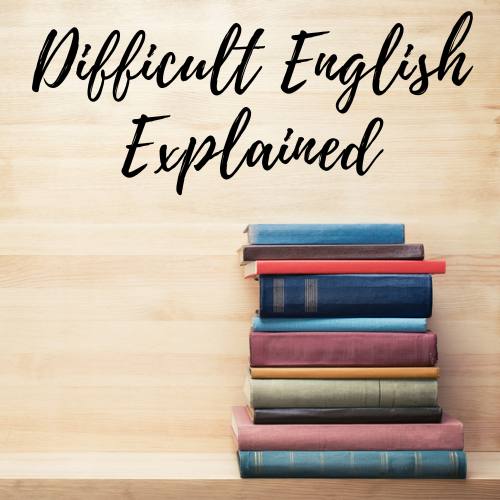
When we learn anything new, including a foreign language, it’s necessary to memorize some basic information. This provides a foundation for everything else. So how can you memorize what you need without wasting a lot of time or feeling bored? Unfortunately, some of the strategies that we learned in school are not very efficient or effective. The good news is that neuroscience, or brain science, has given us some new insights into how our brains work. This makes it possible to test which strategies really work and which ones are a waste of time.
Before I go further, there is one important thing to understand. You don’t get something for nothing. You have to work to remember information. The question is, will you work and remember, or will you work and not remember? In his book Learn Better, Ulrich Boser says:
In the bluntest of terms, there’s simply no such thing as effortless learning. To develop a skill, we’re going to be uncomfortable, strained, often feeling a little embattled.
The Curve of Forgetting
Even when we want to memorize something, we may struggle to do it. Why? We have different types of memory. There is short-term memory and long-term memory. Putting things into short-term memory is pretty easy, but the disadvantage is that you forget them after a short time. Putting things into long-term memory is more work but then the memory stays with you.
There is a famous graph called The Curve of Forgetting. It shows us that getting anything into long-term memory takes repetition. Imagine that you study 10 new words. After your study session, you can recall 100% of the words. If you do not study them again, within 1 day you will only remember 50% of them, or 5 words. Each passing day will cut the amount you remember in half. Within a week, you may not remember any of them. The red line on the graph shows how much you forget each day.

However, if you study the words again after 1 day, then your memory will get stronger. You will still remember 50% of the words after the 4 days. If you study them again the next day, the memory gets even stronger.
Spaced Learning is Essential
Massed learning, or “cramming” at the last minute, is a common strategy but it is problematic. You may be able to pass a test the next day, but you won’t remember the material later. Why? As The Curve of Forgetting shows us, creating a stable, long-term memory takes repetition over a period of time. To create memories, your brain must grow new connections between its cells. These connections are called “synapses.” You build new synapses by studying material, sleeping, and then studying it again. Memories are the result of physical growth in your brain.
Spaced learning is much more effective. Let’s imagine that you need to take a test on some new vocabulary. Today is Monday and the test is in one week. If you spend hours studying the words today and then do nothing more, you will fail the test. You will forget nearly everything within a week. The ideal strategy is to have shorter study sessions but repeat them. If you study today (Monday), Tuesday, and Wednesday, then take a break, and then do a review on Friday, you will create stable memories that will help you pass the test. But there is an added bonus — your memories will stay with you for weeks or months after the test.
Making Sure that You Remember
Now that you know that spaced learning is more effective, let’s go into some more detail. Shorter, more frequent study sessions make it easier to remember material, but what should you do during those sessions?
Let’s start with what doesn’t work. Just reading the information that you want to remember is not effective. Highlighting important concepts in your textbook doesn’t help you remember them, either.
What works is active recall. Here is an example of how to do it. Read a section of your textbook, then close the book and write a brief summary of what you just read. Open your book again and compare your summary to the textbook. Note down what you forgot and what you didn’t understand clearly. Take a short break, then repeat these steps. By summarizing what you read, you practice remembering what you need to know.
Flashcards are another fast and easy way to practice active recall. My favorite flashcard application is Anki. Anki is a free flashcard application that you can download for your desktop or laptop. I put a link to the download site at the end of this blog post.
Anki lets you create your own flashcards, use “decks” of flashcards created by other people, and change them as you like. Anki keeps statistics about what you remember and what you don’t. If you answer a flashcard incorrectly, it will appear again quickly. If you answer correctly, it will be longer before you see it again. This strategy makes sure that you stay focused on the challenging material and don’t “overstudy” material that is familiar to you.
Conclusion
To summarize, what strategies are best for memorizing material? Spaced learning and active recall. Spaced learning means having shorter study sessions but repeating them over a period of time. You must study, then sleep, then study again so that your brain can develop the physical structure necessary for making memories. When you do active recall, you try to summarize the material you are studying or explain it to another person without using your textbook or other materials. You practice remembering the material without any help. If you make spaced learning and active recall part of your routine, you will get the best possible results for the time and effort that you put into studying.
Download the Anki application at:
Be sure to create an account on AnkiWeb so that you can save your progress and download flashcards created by other people.
You can find my decks here:
https://ankiweb.net/shared/by-author/1735362250
References
Boser, Ulrich. (2017) Learn Better: Mastering the Skills for Success in Life, Business, and School, or, How to Become an Expert in Just About Anything (p. 208). Rodale. Kindle Edition.
Oakley, B. & Sejnowski, T. (2018) Learning How to Learn: How to Succeed in School Without Spending All Your Time Studying, Penguin Publishing Group. Kindle Edition, New York, NY, USA
“Be Your Own Teacher: How to Study with Flash Cards,” The Learning Scientists, February 20, 2016, http://www.learningscientists.org/blog/2016/2/20-1 (accessed Feb. 28, 2023)
Would you like to support my content? Make a donation at Buy me a Coffee! https://www.buymeacoffee.com/diffengexplnd
Get notified of new blog posts on my Telegram channel. Sign up at https://t.me/diffengexplnd.
